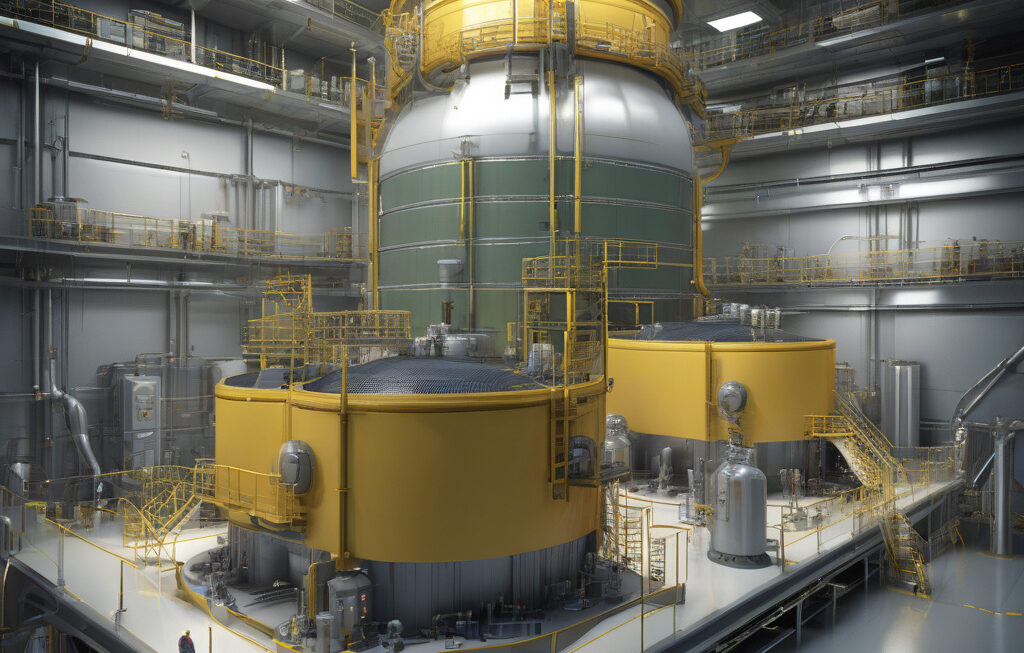Silicon-Based Lewis Acids: A Promising Breakthrough in PFAS Chemical Degradation
In the realm of environmental protection and remediation, the quest for effective solutions to combat harmful chemicals like per- and polyfluoroalkyl substances (PFAS) has been ongoing. Recently, a groundbreaking development has emerged from the laboratories of Technische Universität Berlin (TU Berlin), where researchers have successfully synthesized silicon-based super Lewis acids that could potentially revolutionize the way we address PFAS contamination.
For the first time, the team at TU Berlin has created silicon-based Lewis acids that incorporate an additional halogen atom, enhancing their reactivity and catalytic capabilities. This innovation opens up a myriad of possibilities for leveraging Lewis acids in the degradation of PFAS chemicals, which are notorious for their persistence in the environment and harmful effects on human health.
PFAS compounds, commonly found in various industrial and consumer products, have garnered significant attention due to their widespread presence in water sources and their association with adverse health outcomes. Traditional methods of PFAS remediation have proven to be challenging and costly, prompting researchers to explore alternative approaches that are more efficient and sustainable.
The introduction of silicon-based Lewis acids as potential catalysts for PFAS degradation represents a promising avenue for addressing this environmental challenge. Lewis acids are known for their ability to facilitate chemical reactions by accepting electron pairs from other molecules, making them valuable tools in catalysis and organic synthesis. By harnessing the unique properties of silicon-based Lewis acids, researchers aim to develop innovative strategies for breaking down PFAS compounds into non-toxic byproducts.
One of the key advantages of using silicon-based Lewis acids lies in their high stability and reactivity under a wide range of conditions. This robustness makes them well-suited for applications in environmental remediation, where harsh chemical environments and complex pollutant mixtures demand resilient catalysts that can maintain their effectiveness over time.
Moreover, the tunability of silicon-based Lewis acids allows researchers to tailor their properties to target specific contaminants, enhancing their selectivity and efficiency in PFAS degradation processes. This level of precision and control is essential for designing sustainable solutions that minimize environmental impact and maximize resource utilization.
The implications of this research extend beyond PFAS remediation, offering insights into the broader potential of silicon-based Lewis acids in catalysis and green chemistry. As industries and regulatory agencies seek to adopt more sustainable practices and comply with stringent environmental standards, the development of novel catalysts like silicon-based Lewis acids could pave the way for greener technologies and processes.
While further studies are needed to explore the full scope of applications for silicon-based Lewis acids in PFAS degradation and beyond, the initial findings from TU Berlin underscore the transformative power of innovative thinking in addressing complex environmental challenges. By harnessing the inherent reactivity and versatility of silicon-based Lewis acids, researchers are poised to unlock new possibilities for sustainable development and environmental stewardship.
In conclusion, the synthesis of silicon-based super Lewis acids represents a significant milestone in the ongoing quest to combat PFAS contamination and advance the field of catalysis. With continued research and collaboration, these novel catalysts have the potential to drive meaningful change in environmental remediation practices and contribute to a healthier, more sustainable future for all.
#SiliconBasedLewisAcids, #PFASChemicals, #EnvironmentalRemediation, #GreenChemistry, #TUBerlinResearch











